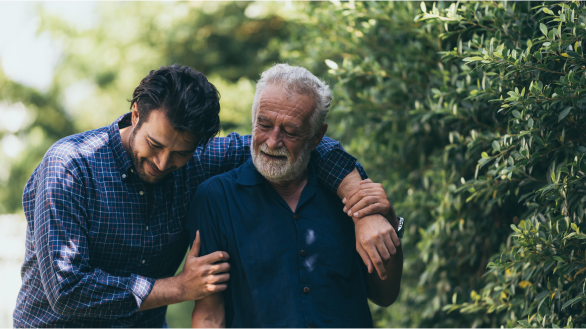
ALS caregiver support
Anyone can be a caregiver and their duties are unique to every situation. Caregiving is done out of love, devotion, and responsibility to the person with ALS. While it can be personally rewarding, it can also extract a huge emotional toll on the caregiver.
Equipment to help people with ALS
These can make your job as a caregiver easier, as well as reduce both physical and mental stress. Some of these tools include:
- Adaptive clothing
Clothing designed for people who have difficulty dressing. These make daily activities, such as dressing and using the bathroom, easier.
- Portable showers
Portable showers can be attached to any faucet, have waterproof sides, allow enough room for a wheelchair to roll in, and have a pump to allow water to flow out into the sink. These can be used if a person has difficulty accessing the bathroom.
- Bidets
If a person with ALS loses hand function, bidets offer a level of independence and can be added to any existing toilet.
- Emergency signal systems
Emergency response services are beneficial when you are home alone. If you apply for this service, you are given a transmitter with an emergency button on it. When you press the button, a signal is sent to the service, informing them of the emergency.
It is also advised that you wear a Medic Alert bracelet (in cases for medical emergencies) if you leave home without a caregiver.
- Cameras
Especially useful for caregivers who work remotely, cameras provide a means to monitor a person with ALS throughout the day.
- Home automation systems
These can allow people with ALS with limited or no hand function to remotely open doors, adjust thermostats, or turn on a TV and other electrical devices.

